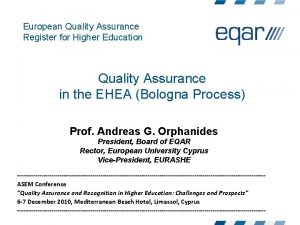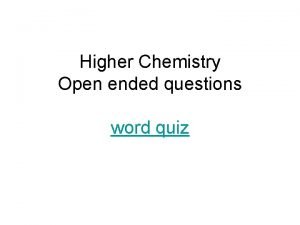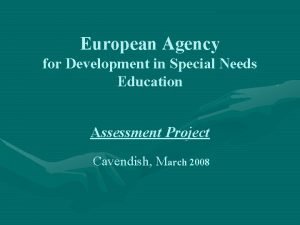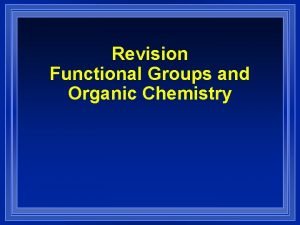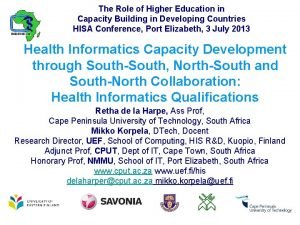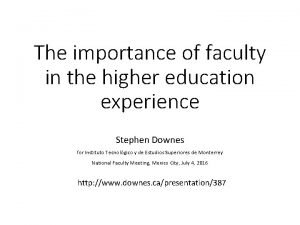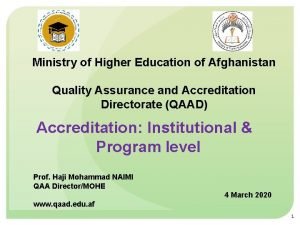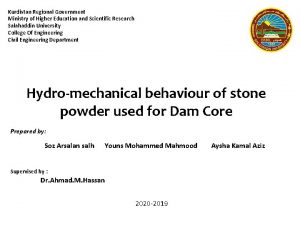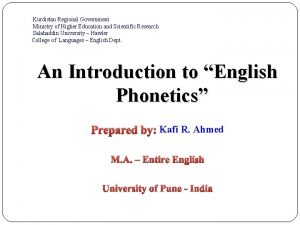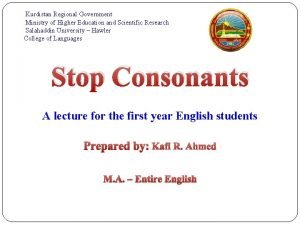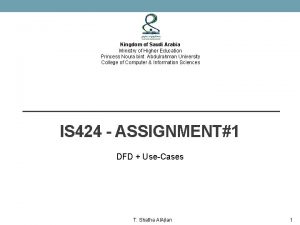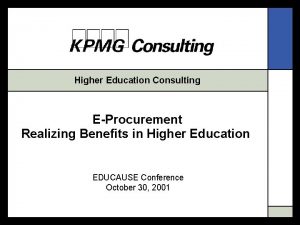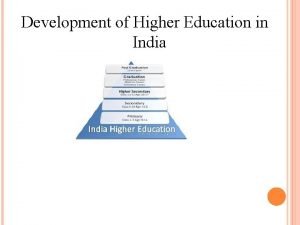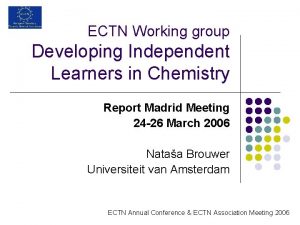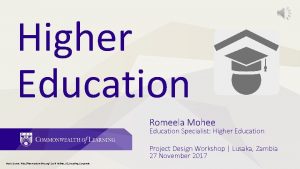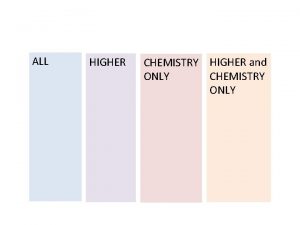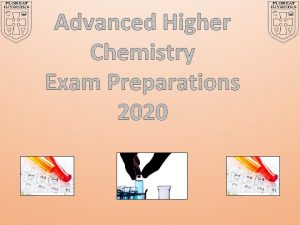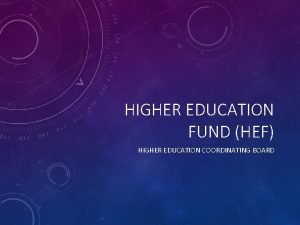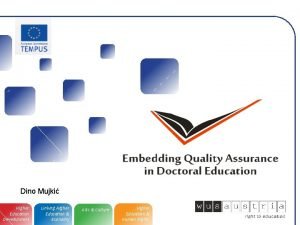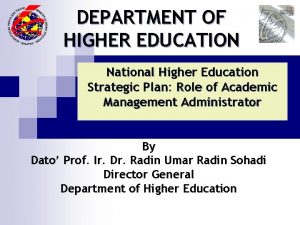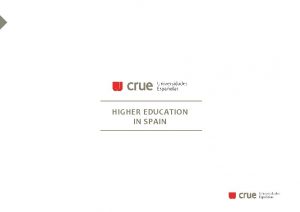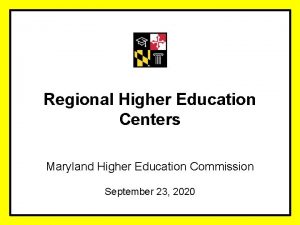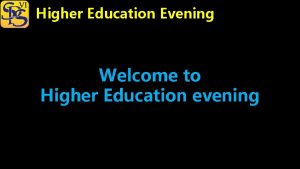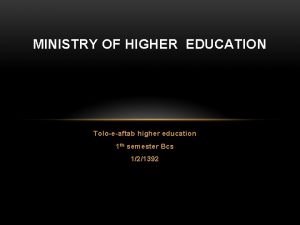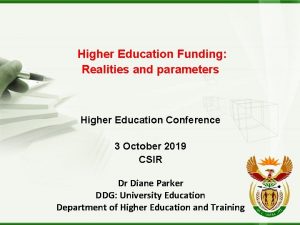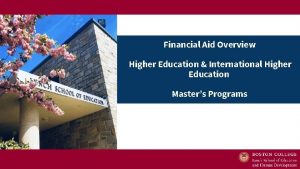ECTN 4 Chemistry in the European Higher Education






















- Slides: 22

ECTN 4 "Chemistry in the European Higher Education Area” 3 – letni projekt UE

Formy pracy • Spotkania plenarne (raz do roku) • Spotkania grupowe (raz do roku) • Szkoły letnie dla studentów i nauczycieli akademickich • Raporty, rekomendacje, regularne publikacje online (ECTN News. Letter) • Strony internetowe np. http: //www. cheminsight. de/ • Eurobachelor, Euromaster – akredytacje • E-chem tests

The aims and objectives • Enhancement of employability of chemistry graduates • Internet-based tests in biological chemistry • Enhancement of professional/generic skills of third-cycle chemists • Participation in Tuning 4 • European framework of chemistry qualifications at all HE levels • Summer schools for students and newly appointed teaching staff • Dissemination of teaching methods and discussions on their effectiveness

The aims and objectives p. 2 • Promotion of inclusion of research results in teaching – links with research networks – possible organisation of masters programmes • Report on best practices in chemistry and chemical technology programmes • Enhancement of the public image of chemistry • Enhancement of the mobility of chemists • Valorisation of previous EU projects involving chemistry in HE • Organisation of a conference to disseminate ECTN outcomes – provide a contemporary picture of chemistry in Europe (in 2009).

Dotychczasowe zaangażowanie Wydziału Chemii UJ 1997 -1998 • Post-University Training for Industrial Chemists – M. Frankowicz 1999 -2000 • Core Chemistry: Teaching Methods and Assessment – A. Kolasa 2000 -2004 • Biological chemistry – G. Stochel • Chemical Education using Multimedia – M. Frankowicz • Postgraduate Education and Training - A. Kolasa http: //www. cpe. fr/ectn-assoc//network/wg_chrono. htm

Dotychczasowe zaangażowanie Wydziału Chemii UJ 2002 -2006 • Chemistry and Cultural Heritage – T. Łojewski 2003 -2004 • Newly Appointed Uni Teaching Staff - I. Maciejowska • Teacher/Training Evaluation by Students – P. Kozyra 2004 -2006 • Links with Schools – I. Maciejowska, M. Krzeczkowska • European Dimension in 2 nd and 3 rd Cycle Studies - A. Kolasa (group leader) http: //www. cpe. fr/ectn-assoc//network/wg_chrono. htm

ECTN WORKING GROUP: EUROPEAN DIMENSION IN 2 nd AND 3 rd CYCLE STUDIES Aim of the group / Rationale: To provide the common vision of the Master and Ph. D in chemistry During the first year of activity the WG discussed Master studies whereas the second year has been devoted to doctoral studies Meetings: Kraków (Poland), 1 - 2 of April 2005 Thessaloniki (Greece), 4 – 7 of May 2005 Helsinki* (Finland), 24 – 25 of February 2006 Vienna (Austria), 19 th of April 2006 * Helsinki meeting was organized together with TUNING Chemistry Subject Area Group

Second cycle studies Some important points discussed: Ø The vision of the 2 nd cycle: advanced courses in basic branches of chemistry versus specialization Ø Curriculum development: modules – “boxes” (usually 5 ECTS) depending on the university Ø Learning outcomes in terms of generic and subject specific competences Ø Measure of the 2 nd cycle in ECTS credits: usually 120 Ø The important role of a research project (minimum 30)

Second cycle studies Some important points discussed: ØThe role of a supervisor and a mentor (assessor) from the very beginning of the 2 nd cycle ØNew ideas how to improve the examination system ØFinal examination and state examinations in some countries (Cz. R, SK) and some branches (e. g. food chemistry) ØTeachers education – various systems

Recommendations lØ Harmonization of teaching periods

Recommendations Ø Quality as a trademark for European education Ø Starting point for the 2 nd cycle: The Chemistry Eurobachelor Ø For better students possibility to start Ph. D after BSc Ø Not less than 30 credits for Master thesis Ø Learning outcomes most important (necessity to match the examination technique to learning outcomes) Ø Both oral and written examinations Ø Decimal system of grading

Third cycle studies Some important points discussed: • What is Ph. D for? – to train students to be independent researches – to produce new scientific knowledge – to maintain succession of research chemists

Some important points discussed • Are Ph. D candidates students or employees? • Budapest descriptors • Duration of 3 rd cycle (3 – 5 years) and ECTS credits for coursework (15 – 60) • Graduate student teaching • Ph. D supervision • Assessment of Ph. D candidates • Ownership of research

Recommendations: • Maintaining records of student’s skill development • Joint degrees supporting mobility • Coursework Skills including language Supporting courses Thesis research Participation and awareness

Recommendations Purpose of Ph. D examination/defence of thesis - to evaluate: – Quality and quantity of research presented in thesis – Student’s understanding of his/her research – Student’s awareness of the significance of his/her work to the development of the discipline A component of teaching included in Ph. D programmes, useful to a graduate’s personal development Training for supervisors of Ph. D encouraged

Recommendations • Direct transfer from 1 stcycle to 3 rdcycle for high fliers Cycles

New working groups 2006 -2009 • The employability of chemistry graduates. leader: Pavel Drasar (Prague, CZ). • Innovation in Chemistry Teaching. leaders: Ingo Eilks (Bremen, DE) and Bill Byers (Ulster, UK), • Internet-based tests in biological chemistry. leader: Arne van der Gen (Leiden, NL). • Valorisation of Leonardo, Socrates, Grundtvig and Tempus projects in Chemistry

ECTN 4 • Anyone interested in participating in the work of these groups is invited to contact the group leader • http: //www. cpe. fr/ectn-assoc// • http: //www. cpe. fr/ectnassoc/news/letter/2006/074_200610. htm

Innovation in Chemistry Teaching • Modern theories of learning and the need for innovation in university chemistry education Writing: Ingo Eilks (Bremen, DE) and Bill Byers (Ulster, UK) • Problem- and context based approaches within university chemistry education Leaders: Bill Byers (Ulster, UK) and Tina L. Overtone (Hull, UK) • Research-based teaching Leaders: Sari Lindblom-Ylänne (Helsinki, FI) and ? ? • From forming groups to cooperative learning Leaders: Ingo Eilks (Bremen, DE) and Marcus Baeumer (Bremen, DE) • Making students the teachers - Peer-tutoring in the lab environment Leaders: ? ? and ? ?

Innovation in Chemistry Teaching • Dealing with chemicals and experiments in a different style – including risk assessment, environmental issues and micro-scale approaches Leaders: ? ? and ? ? • Learning beyond the lecture hall Leaders: Ray Wallace (Nottingham Trent, UK) and ? ? • Online support and online assessment of lectures and lab-work Leaders: Natasa Brouwer (Amsterdam, NL) and Claire Mc. Donnell (Dublin, IE) • Multimedia and visualisation Leaders: ? ? and ? ? • Training programs for newly appointed teaching staff Leaders: Paul Yates (Keele, UK) and Iwona Maciejowska (Krakow, Pl)

Innovation in Chemistry Teaching • We are looking for volunteers interested in becoming a sub-group leader in one of the areas mentioned above. • We are also looking for contributors to describe specific innovations in university chemistry education

Summer School Szkolenie dla nowozatrudnionych (do 5 lat) nauczycieli akademickich • 12 -16 czerwca 2007, • Victoria Hotel, Sliema, Malta • koszty pokrywa UE • Zeszłoroczna szkoła http: //www. cpe. fr/ectnassoc//network/wgws_naucts/ssm_index. htm
 European quality assurance register
European quality assurance register Higher chemistry open ended questions with answers
Higher chemistry open ended questions with answers Higher chemistry unit 3
Higher chemistry unit 3 European society for engineering education
European society for engineering education European agency for development in special needs education
European agency for development in special needs education Ib organic chemistry functional groups
Ib organic chemistry functional groups Organic vs inorganic chemistry
Organic vs inorganic chemistry Higher education web analytics
Higher education web analytics Capacity building in the field of higher education
Capacity building in the field of higher education Importance of faculty in higher education
Importance of faculty in higher education Ri board of governors
Ri board of governors Ppc for higher education
Ppc for higher education Ministry of higher education (afghanistan)
Ministry of higher education (afghanistan) Massachusetts higher education consortium
Massachusetts higher education consortium Ministry of education krg
Ministry of education krg Kurdistan
Kurdistan Kurdistan higher education
Kurdistan higher education Ministry of higher education saudi arabia
Ministry of higher education saudi arabia Internationalization of higher education in the philippines
Internationalization of higher education in the philippines Higher education eprocurement
Higher education eprocurement Digital initiatives in higher education
Digital initiatives in higher education Gartner digital transformation in higher education
Gartner digital transformation in higher education Wood despatch 1854
Wood despatch 1854
